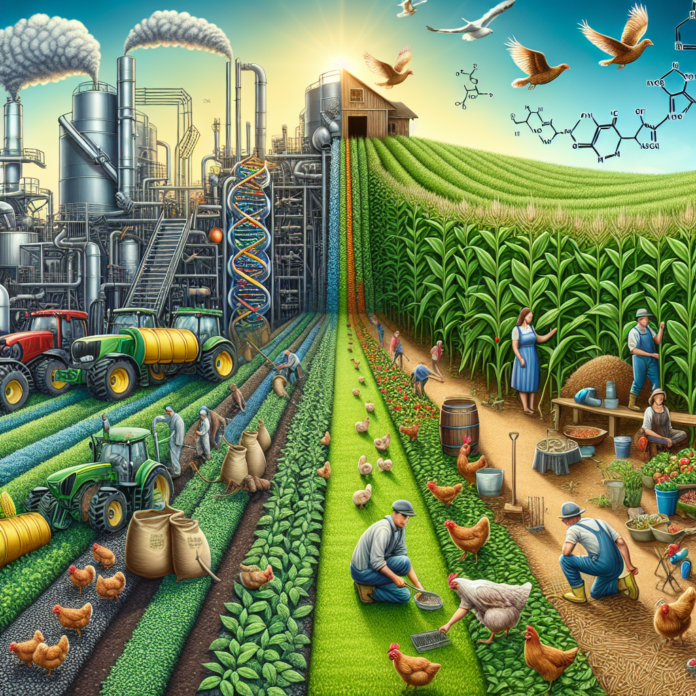Imagining a Future Shaped by Organic Farming Advocates
Viewpoint: Imagining a World Transformed by Organic Agriculture
In recent years, the movement advocating for organic agriculture has gained significant momentum, promoting a vision of farming that emphasizes sustainability, environmental health, and the reduction of chemical inputs. But what would the world truly look like if these organic advocates succeeded in transforming global agriculture according to their ideals?
Environmental Impact
One of the primary benefits touted by organic farming proponents is its positive impact on the environment. By eliminating synthetic pesticides and fertilizers, organic farming reduces the pollution of waterways and soil degradation. A shift to organic practices could lead to improved biodiversity, as natural pest controls and crop rotations create a more balanced ecosystem. However, the challenge lies in managing increased land use, as organic farming often requires more land to produce the same yield as conventional farming.
Economic Considerations
Transitioning to organic agriculture on a global scale would have significant economic implications. Initially, farmers might face increased costs due to the need for new equipment and practices, as well as potential yield reductions. However, as demand for organic products continues to rise, farmers could benefit from premium prices for their goods. Additionally, the creation of a robust organic market could lead to job opportunities in organic farming, distribution, and retail sectors.
Food Security
A critical concern surrounding a complete transformation to organic farming is the potential impact on global food security. While organic methods can be highly productive, they often yield less than conventional methods. Addressing this challenge would require innovations in organic farming techniques and possibly integrating some conventional practices to ensure that global food demand is met without compromising sustainability.
Health Implications
Organic agriculture advocates argue that reducing chemical residues on food can lead to better health outcomes. A world embracing organic farming might see a decline in pesticide-related health issues and a general improvement in public health. However, it would be essential to conduct comprehensive studies to confirm these benefits and address any nutritional gaps that might arise from reduced food variety.
Technological Innovations
Achieving a global shift to organic agriculture would likely spur technological advancements in farming techniques. Innovations such as precision agriculture, which utilizes data and technology to improve crop management, could become crucial in making organic farming more efficient and productive. Additionally, research into natural pest control and soil health would become increasingly important.
In conclusion, if organic advocates were to successfully transform global agriculture, the world could experience significant environmental and health benefits. However, this transformation would require careful consideration of economic impacts, food security challenges, and the need for technological innovation. Balancing these aspects would be essential to creating a sustainable agricultural future that meets the needs of the global population.
